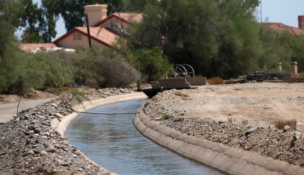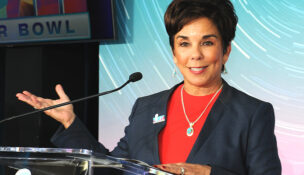Arizona Dems see 2008 as chance to expand on ’06 gains
Arizona Capitol Reports Staff//January 3, 2008//[read_meter]
Arizona Dems see 2008 as chance to expand on ’06 gains
Arizona Capitol Reports Staff//January 3, 2008//[read_meter]
The political math has been pretty simple in recent decades when it came to Arizona’s U.S. House delegation: more Republicans than Democrats.
But that changed in 2006 when Democrats captured two seats held by Republicans, giving the parties a 4-4 split in the eight-member delegation.
Now, Democrats enter 2008 with money in the bank and hopes of hanging onto their 2006 gains and even picking up one or two more seats now held by Republicans.
Meanwhile, Republicans will be trying to recapture the seats they lost in 2006 while keeping current GOP seats in the fold.
With only a handful of statewide offices on the ballot, look for much of the election action in Arizona to center on the 8th Congressional District in southeastern Arizona and the 5th District centered on Scottsdale.
In the 8th District, freshman Democrat Gabrielle Giffords will try to fend off an all-but-announced challenge from Republican Tim Bee, the current state Senate president. He’s been raising serious money but can’t announce his candidacy until 2008 without running afoul of the state’s resign-to-run law.
In the 5th District, a multi-candidate field of Republicans is lining up to compete in the September primary for the nomination to oppose Democrat Harry Mitchell.
The seats won by Giffords and Mitchell were among 30 that Democrats picked up in 2006 to help their party recapture control of the U.S. House amid wide dissatisfaction with President Bush, the war in Iraq and other concerns.
Entering 2008, both districts are among 29 nationwide designated for special attention by the Democratic Congressional Campaign Committee.
“Arizona is up there as a battleground,” said committee spokesman Doug Thornell.
Giffords, a former state legislator, won a seat vacated by a longtime Republican incumbent who retired. Mitchell, a former Tempe mayor and ex-legislator, ousted a GOP incumbent, J.D. Hayworth.
The 5th District seat “is a tremendous opportunity,” said Sean McCaffrey, the Arizona Republican Party executive director, citing Republican voter-registration efforts and Mitchell’s new status with a record to defend.
The race between Bee and Giffords likewise should be very competitive between Giffords’ incumbency and fundraising acumen and Bee’s prominence and reputation as a consensus-builder in the Legislature, said William Dixon, a University of Arizona political science professor.
“I think she has to be the favorite going into the race,” Dixon added.
Elsewhere, Republican Rick Renzi’s decision to not seek re-election from the 1st District in mostly rural areas of northern and eastern Arizona puts that seat up for grabs.
Democrats hold an edge in voter registration in the district but the race still is considered a tossup between the parties. Each party is expected to have at least two candidates running for its nomination.
None of the sprawling district is within the Phoenix metrotropolitan area, but much of it gets Phoenix-area media so campaigning will be expensive, McCaffrey said.
In the Republican-leaning 3rd District centered on north Phoenix, GOP incumbent John Shadegg has had little trouble winning re-election. But 2008 sees him facing an unusually strong challenge from Democratic attorney Bob Lord.
The 3rd District “is pretty high on our radar screen,” said Maria Weeg, Arizona Democratic Party executive director. “We don’t have a Hayworth to run against but we do have someone who has not had a serious challenge.”
“The Democrats are counting on this as being the same as the Hayworth seat but it’s not,” McCaffrey said. “Congressman Shadegg is not Congressman Hayworth.”
It makes sense that Democrats try to expand the battlefield to include additional districts as they enter the year with fundraising advantages and perceived strong hands to play on issues and concerns such as the economy, Dixon said.
“All those things play out on the ground in the district, but there are some national and state level forces that play a role,” Dixon said.
At least for now, the four other House seats are seen as safe for the incumbents: Republicans Trent Franks and Jeff Flake and Democrats Ed Pastor and Raul Grijalva.
















